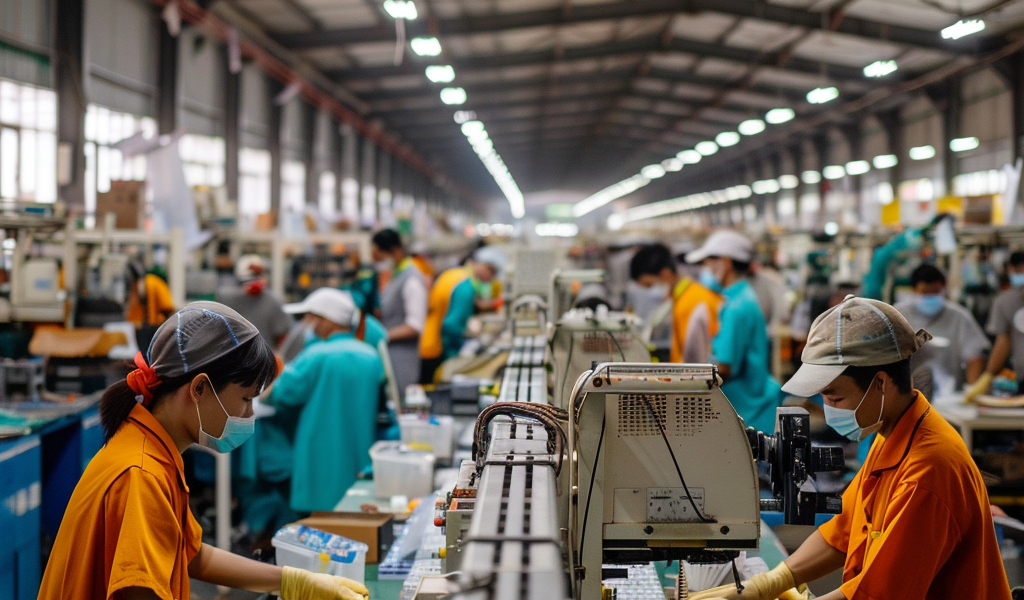Vietnam’s economy has demonstrated unexpected resilience, recording a significant growth of 7.4% in the third quarter of 2024, as reported by the General Statistics Office (GSO). This growth surpasses the median estimate of 6.1% from a Bloomberg survey and marks an increase from the revised 7.09% expansion observed in the previous quarter. The robust performance of the manufacturing and export sectors has played a pivotal role in this economic upturn, despite the looming challenges posed by the recent Super Typhoon Yagi.
The typhoon, which struck Vietnam’s northern provinces, has caused widespread destruction and is estimated to have inflicted economic damages exceeding $3 billion. The storm has raised concerns about the country’s growth trajectory for the remainder of the year. GSO head Nguyen Thi Huong indicated that the severe impact of Yagi on agriculture and crop outputs could pose significant hurdles for the economy, especially as the government aims for a GDP growth target of 6.8% to 7% for 2024.
In light of the challenges presented by the typhoon and ongoing geopolitical tensions, Huong acknowledged that achieving the government’s growth target would be a “big challenge.” The GSO has previously indicated that the typhoon could reduce this year’s growth by approximately 0.15 percentage points.
Despite these setbacks, the Vietnamese government remains committed to bolstering the economy. Prime Minister Pham Minh Chinh has emphasized the importance of attracting foreign investment, particularly from major technology firms such as Samsung Electronics and Intel Corp. Vietnam is increasingly being viewed as a viable alternative to China for electronics production, ranging from smartphones to semiconductors.
The manufacturing sector, alongside significant advancements in agriculture, has been identified as a key driver of economic growth during the third quarter. The GSO highlighted that gains in these sectors during July and August helped mitigate some of the adverse effects of the typhoon.
However, the manufacturing sector faced challenges in September, where factory activity contracted for the first time in five months, according to an S&P Global purchasing managers’ index report. This contraction reflects the economic strains caused by the typhoon and the broader implications of global economic uncertainties.
In response to the economic challenges, analysts from Mitsubishi UFJ Financial Group Inc have suggested that the State Bank of Vietnam may adopt a more dovish stance, potentially lowering interbank interest rates to stimulate economic activity following the impact of the typhoon.
The International Monetary Fund (IMF) has projected Vietnam’s growth at 6.1% for 2024, slightly higher than its previous estimates. This optimistic outlook is attributed to sustained strong external demand, resilient foreign direct investment, and supportive economic policies.
As Vietnam navigates the aftermath of Super Typhoon Yagi and the challenges posed by global economic conditions, the government’s focus on infrastructure improvements and cost reductions in logistics remains crucial. The dynamic nature of Vietnam’s economy and its ability to adapt to external pressures will be key factors in determining its growth trajectory in the coming months.
In summary, while Vietnam’s economy has shown remarkable growth in the face of adversity, the impacts of natural disasters and global economic trends will continue to shape its future performance. The government’s proactive approach in attracting foreign investment and enhancing domestic industries will be vital in sustaining this growth momentum.





